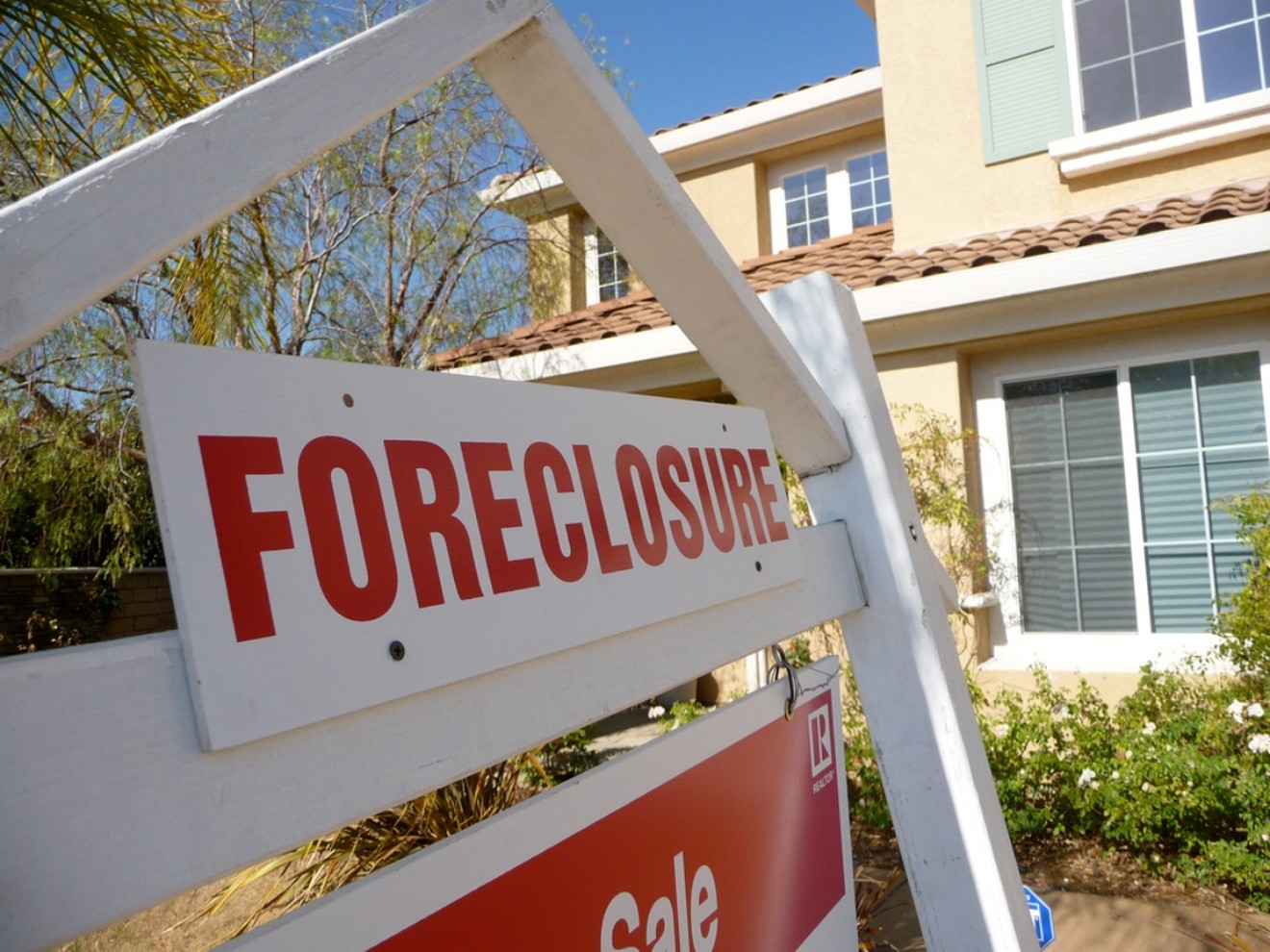A March 18 nationwide moratorium — which bans foreclosures on federally backed mortgages until mid-May —was supposed to offer her some relief amid the coronavirus crisis. She should have had a few months to regroup while she scrambled to secure a loan modification or scrape up the cash needed to make up missed payments on her Veterans Affairs home loan.
It didn't pan out that way.
On March 25, a process server arrived at Charlotte's house in Hollywood to inform her that her mortgage bank, Village Capital and Investment, was foreclosing on her.
"My son was here, and he answered the door. The process server gave him the paperwork. I put it aside for a moment because I was so overwhelmed," Charlotte tells New Times. "When I read it, I said, 'Oh, God. More to deal with besides coronavirus.'"
The ongoing foreclosure moratorium covers VA home loans, loans insured by the Federal Housing Administration, and mortgages purchased by government-sponsored entities Freddie Mac and Fannie Mae.
The foreclosure was filed by the McCalla Raymer law firm in Orlando five days after the federal foreclosure ban went into effect. The law firm did not respond to questions from New Times about why it filed the case in spite of the moratorium.
Charlotte, who served in the Air Force and the National Guard during the 1980s, says she'd been trying in vain to work with loan officers on a solution to keep her house. Her cancer diagnosis in 2018 sidelined her from work and caused her to fall behind on her mortgage. (Charlotte asked to be identified only by her first name owing to concerns about medical privacy and potential repercussions for her business.)
Last year, she had to travel back and forth from the Moffitt Cancer Center in Tampa for medical consultations. The treatment culminated in a painful surgery.
"I couldn't work. I was having horrible symptoms even beforehand. It all took a huge toll on me financially," she says. "[The loan officers] said I wasn't making enough money for a modification. I told them I'm getting myself on track after the surgery. It takes time for someone to recover from cancer."
On April 10, more than two weeks after filing the foreclosure, lawyers for the mortgage company asked the judge assigned to Charlotte's case to postpone the proceedings on account of the pandemic. But some damage had already been done: Foreclosure filings typically remain on a consumer credit report for seven years, and they're stamped permanently into the court record. Additionally, the filings often result in fees and court costs that are charged to the homeowner."I'm getting myself on track after the surgery. It takes time for someone to recover from cancer."
tweet this
Charlotte isn't alone in receiving foreclosure papers after the moratorium cutoff date. Hallandale Beach resident Rosanne Johnson was hit with a foreclosure on March 19. She and her late husband, Jerry, acquired their 1,200-square-foot home, which sits on a palm-tree-lined corner lot a few blocks west of U.S. 1, in 1990.
Johnson, who's 76, has a reverse mortgage insured by the Federal Housing Administration, a type of loan that allows seniors to borrow against their property value to cover living expenses, consumer debts, or medical bills. According to Nationstar, Johnson's mortgage company, her loan went into default because her property taxes or house insurance payments were not kept current.
Nationstar is represented in Johnson's foreclosure case by McCalla Raymer — the same firm handling Charlotte's foreclosure. The week after filing the case against Johnson, the lawyers asked the court to postpone proceedings. (New Times was unable to reach Johnson for comment.)
A spokesperson for Mr. Cooper Group, Nationstar's parent company, says a clerical error is to blame for the late filing.
"It was a big misunderstanding. It was one of those instances where the issue was fixed as soon as the mistake was realized," says spokesperson Robert Smith.
The filing against Johnson wasn't the only Nationstar case to slip through the cracks. On the evening of March 18 — hours after the moratorium had been announced — the company filed to foreclose on 78-year-old Miami resident Betty Cheng's FHA-insured reverse mortgage.The filing against Johnson wasn't the only Nationstar case to slip through the cracks.
tweet this
Cheng tells New Times a lapse in her insurance caused her loan to go into default and that she has been in touch with Nationstar to resolve the issue. Yet the case against her remains active, and Nationstar has not taken action in court to postpone the proceedings. (Smith says Nationstar has made a concerted effort to freeze any foreclosures filed during the moratorium.)
Lawyers for another servicer, First Guaranty Mortgage, dropped an FHA-loan foreclosure case against a young Miami couple after New Times reached out to ask why the filing had come in after the cutoff date. They say they're "working vigorously to comply with state, federal, and local guidelines during this difficult time."
"If any activity on a case was taken in violation of any [government] directive, it was an oversight and will be corrected immediately as we continue to implement and monitor the evolving and changing situation," says Christopher Peck, an attorney who represents First Guaranty.
Miami attorney David Winker says that aside from the federal moratorium, some banks have not abided by Florida's own protective measures during the coronavirus outbreak. Gov. Ron DeSantis prohibited all new mortgage foreclosures and residential evictions in Florida for 45 days beginning April 2.
Yet Winker says Wilmington Savings Fund Bank attempted to evict his clients from their foreclosed home on April 7 — five days after the governor's mandate and three weeks after the Florida Supreme Court suspended the eviction orders known as writs of possession. (A writ of possession comes at the end of the foreclosure process, giving a bank the right to physically take over a foreclosed property.)
Winker told the court the bank's efforts to get a writ against his clients "in the middle of the COVID-19 crisis is troubling and raises both public policy and public health concerns."
Wilmington Savings responded April 9, telling the judge it did not object to suspending the eviction until the state lifts the ongoing restrictions. But the bank is fighting the homeowners' request to postpone the eviction until an appeal in their case is resolved.
As Winker sees it, banks shouldn't be pursuing routine foreclosure activity, given that the Florida Supreme Court has suspended nonessential court proceedings. He sent a letter April 1 to the governor's office, the Florida Supreme Court, and various Miami officials, sounding the alarm about what he sees as pervasive bank misconduct.As Winker sees it, banks shouldn't be pursuing routine foreclosure activity.
tweet this
"I am writing to protest that continuing to process foreclosures is fundamentally unjust and contrary to due process given that the court system is shut down to litigants and homeowners involved in these foreclosures," Winker wrote.
Winker says the government has done little to enforce its orders barring banks and mortgage servicers from continuing to file foreclosures.
"The most charitable view of what the mortgage servicers did is that everything was in process and it was accidental. Maybe you had secretaries at the office just pounding out paperwork," Winker says. "Another possibility is that they were thinking, 'Get this stuff filed and put the burden on homeowners to respond.'"
Winker acknowledges that the homeowners protected by the moratorium had fallen behind on their mortgage payments before coronavirus reared its head. Because it takes a few months of nonpayment to prompt a foreclosure, those facing a new case in March likely went into default in 2019, if not earlier.
But Winker fears the economic downturn spurred by the pandemic will generate a new wave of foreclosures that could inundate courts when they're back in session.
The federal CARES Act allows homeowners affected by the coronavirus outbreak to suspend mortgage payments on federally backed mortgages for 180 days, with an extension available for an additional half-year. The deferred payments will not be erased and forgiven under the current framework, however — meaning homeowners will have to make those payments down the road.
"This is math," Winker says. "It's not like there's some evil guy sitting at a desk looking at a piece of paper and deciding he's gonna foreclose your house. When the forbearance period is up and these mortgages go bad, the foreclosures are all ready to go. No moratorium can stop this. This is dictated by credit agreements. It's already in the books."
Patrice Paldino, executive director of Plantation-based nonprofit Coast to Coast Legal Aid, echoes concerns about a potential onslaught of foreclosure cases in the coming months.
"What we really are getting ready for is the tsunami of foreclosures and evictions that could hit once the moratoriums are lifted," Paldino says.












